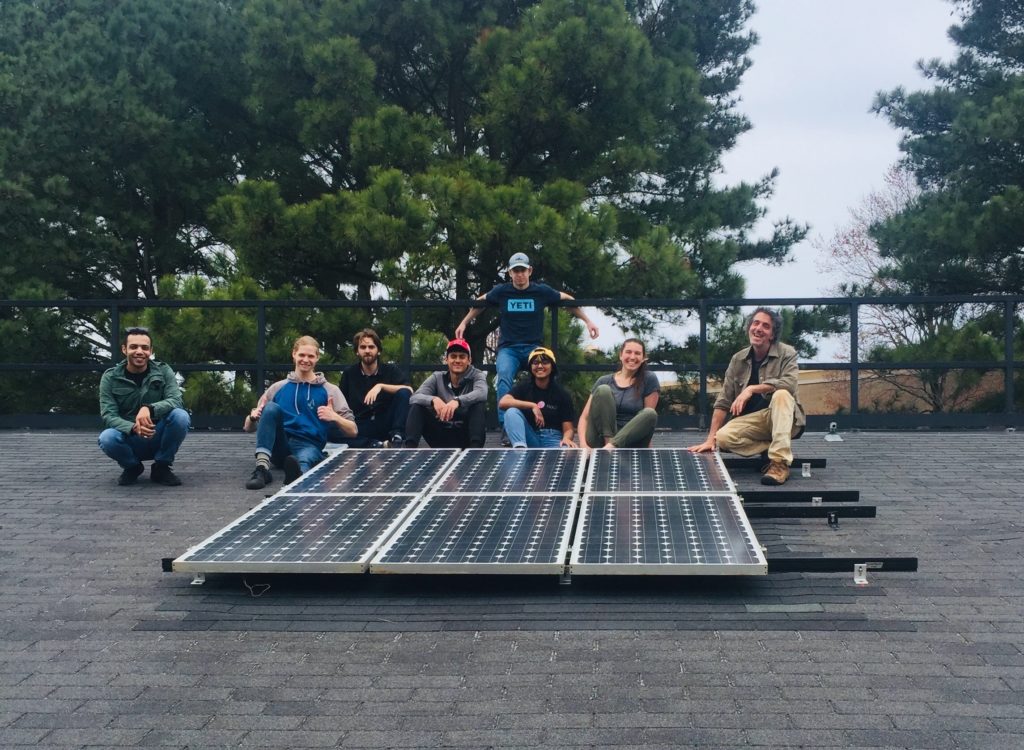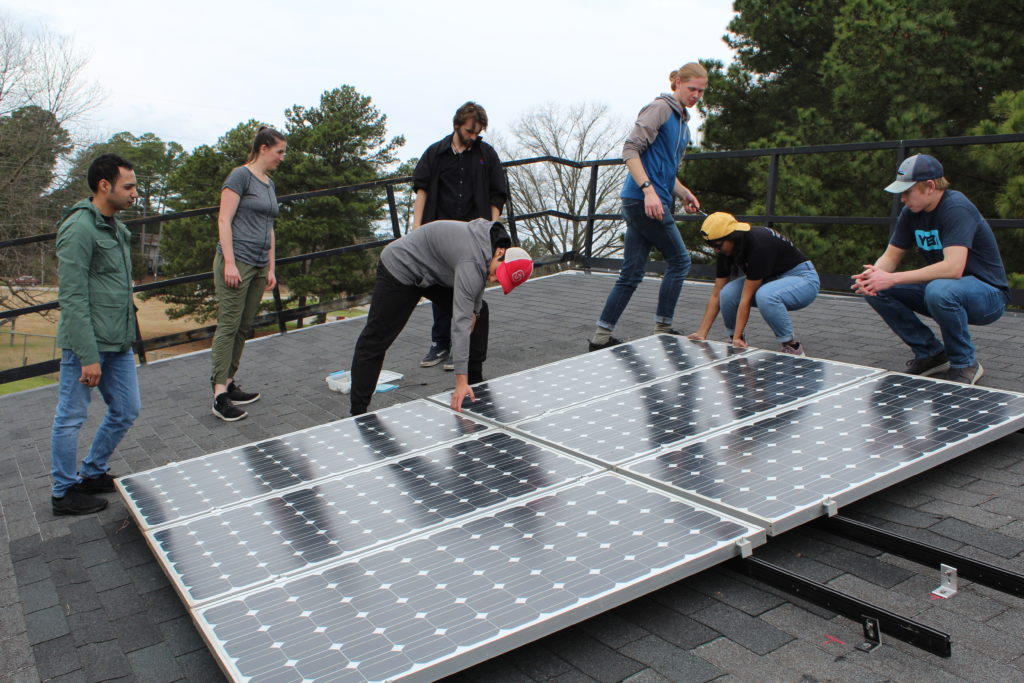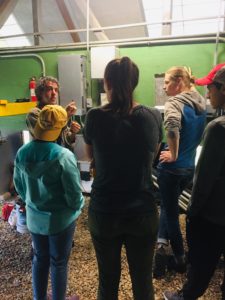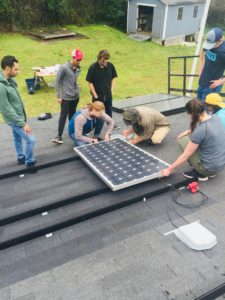Students Graduate from Solar Spring Break Training

Earlier this month, eight students spent their spring break learning how to install a solar photovoltaic system on a mock roof.
The Solar Spring Break Training, March 9-13, was a part of the Energy That Works series at the NC Clean Energy Technology Center (NCCETC). Through funding from the NC State Student Sustainability Fund, the NCCETC offered a discounted REPV: Fundamentals of PV Design and Installation 40-hour training course covering the process of designing and installing photovoltaic systems at NC State University. The first four days were classroom-oriented, and on the final day, students learned how to install a PV system during a hands-on workshop.
The class was offered at only $100 for students, versus the usual $1,119 rate.
“We chose to do the REPV training for students through this Energy That Works program to give them the opportunity to develop professional skills while being university students,” said Allison Carr, Clean Transportation Specialist at NCCETC and leader of the Energy That Works program. “We’ve had students express interest in participating in the past, but they were unable to take the course because it conflicted with other coursework. We wanted to offer the course during a time when students could attend the course from 9 a.m.-5 p.m.”
Participating students all earned certificates of completion and became eligible to take the NABCEP PV Associate Exam.
Students came from a variety of backgrounds with a variety of knowledge levels – ranging from not knowing anything about solar PV, to an electrical engineer. They came from NC State, UNC Chapel Hill and Duke University, representing several different majors.
“Their interdisciplinary backgrounds contributed to valuable conversations throughout the week,” Carr said.
“I was really impressed with them,” said instructor David Del Vecchio. “They asked good questions. It gives me hope for the future.”

Class graduate Tasmia Zaman, Environmental Studies senior at UNC-Chapel Hill, said she became interested in the field when she attended the UNC Clean Tech Summit and listened to a panel on solar and conservation.
“I came in (to training) literally knowing nothing,” Zaman said. “I didn’t even know what AC (alternating current) and DC (direct current) was, as far as electricity goes. Now I can understand a lot. The way the class was designed, even a total beginner could grasp it quickly – which I really appreciated.”
Aaron Schwartz, Environmental Sciences senior at NC State, said he has been passionate about renewable energy for a while and hopes to go into the Peace Corps to use his knowledge there.
“I’m minoring in renewable energy assessments, so I’ve seen a lot of this material before – but it was good to get it in person. The hands on was also really fun,” Schwartz said. “I enjoyed the variety of knowledge levels we had coming in, and how we were all still able to get up on the roof today.
“Today was my favorite part,” Zaman said, after the hands-on session. “For obvious reasons, we’re outside doing stuff. But also, seeing what we’re actually working with – after doing all of those diagrams – it just clicked.”
Zaman and Schwartz said the lessons they learned during the training would be beneficial to anyone.
“I think that more people should have the opportunity to learn this kind of stuff especially since we depend on energy so much,” Zaman said. “Just being able to understand what’s going on, I think that’s valuable.”
“It’s important to understand how the most used form of energy in our daily life is managed,” Schwartz said.


Carr said she’d like to offer the REPV training again for college students across North Carolina.
“Ideally, we can keep the course affordable for students,” Carr said. “We were able to offer the course at a low cost to students this year because the program was supported by the NC State Sustainability Fund. In the future, it is possible that we will look for sponsorships or grants to help cover the cost for college students. We are looking at opportunities to host the course during Spring Break or in the summer during times when students could fully participate.”
The Energy That Works program will continue to offer field trips and site visits to locations across North Carolina to see energy in the real-world. Two more trips were planned this Spring, however, campus closures and the impact of COVID-19 mean that future trips will be postponed until the Fall 2020 semester. In the meantime, Carr said she is organizing a series of virtual chats so that students can learn about careers related to energy and the environment. The Energy That Works Career Chats will be hosted over four weeks in April. More information will be posted on the NCCETC website soon.
“We’d love to hear from you, if you’re an energy professional with a good story to tell about your career,” Carr said.
NCCETC’s Energy That Works Series is a project supported by the North Carolina State University Student Sustainability Fund. The project’s goal is to facilitate meaningful dialogue across disciplines about the importance of clean energy and its role in creating a sustainable future, and increase coordination among energy efforts at NC State University. The project includes a Field Trip Series, Renewable Energy Training Program, a student internship opportunity at NCCETC, and a creation of planning group meetings comprised of students, faculty and staff to support planning and outreach.
To learn more about Energy That Works, go here. To learn more about NCCETC training, go here.
Contact Allison Carr at akcarr@ncsu.edu for Energy That Works information. For training questions, contact Megan Berry at mdcain@ncsu.edu or 919-513-4790.